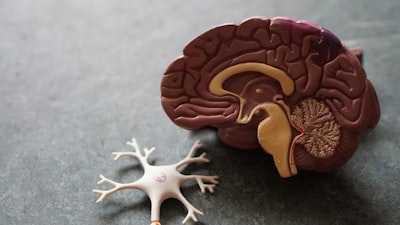The Science Behind Stress
Your central nervous system (CNS) is in charge of your “fight or flight” response. In your brain, the hypothalamus gets the ball rolling, telling your adrenal glands to release the stress hormones adrenaline and cortisol . These hormones rev up your heartbeat and send blood rushing to the areas that need it most in an emergency, such as your muscles, heart, and other important organs.
When the perceived fear is gone, the hypothalamus should tell all systems to go back to normal. If the CNS fails to return to normal, or if the stressor doesn’t go away, the response will continue.
31
163 reads
CURATED FROM
IDEAS CURATED BY
Temporary stress can induce a short fight or flight response, but chronic stress can cause permanent damage to our heath. As someone who has not been relaxing at all due to the heat of mock exams, university interviews, intense revision plus a never-ending to-do list, I decided to read this article to deter me from pressurising myself and force myself to pause and make a better system for me.
“
The idea is part of this collection:
Learn more about health with this collection
How to practice self-compassion
How to identify and challenge negative self-talk
How to build self-confidence
Related collections
Similar ideas to The Science Behind Stress
The Stress Response
When someone confronts an oncoming danger, the eyes or ears (or both) send the information to the amygdala, an area of the brain that contributes to emotional processing. When it perceives danger, it instantly sends a distress signal to the hypothalamus.
...
Stress can prevent you from keeping a healthy weight
Stress can prevent you from keeping a healthy weight.
Every time you're stressed, your adrenal glands release adrenaline and cortisol. Your body releases glucose into your bloodstream to increase your energy levels for a possible fight or flight response...
Worry, anxiety, and stress
- Worry. A repetitive form of thinking about the future or the past.
- Anxiety. An uncomfortable feeling of fear, apprehension, or dread, often in the gut or chest, accompanied by physical symptoms such as rapid heartbeat and sweating.
Read & Learn
20x Faster
without
deepstash
with
deepstash
with
deepstash
Personalized microlearning
—
100+ Learning Journeys
—
Access to 200,000+ ideas
—
Access to the mobile app
—
Unlimited idea saving
—
—
Unlimited history
—
—
Unlimited listening to ideas
—
—
Downloading & offline access
—
—
Supercharge your mind with one idea per day
Enter your email and spend 1 minute every day to learn something new.
I agree to receive email updates


